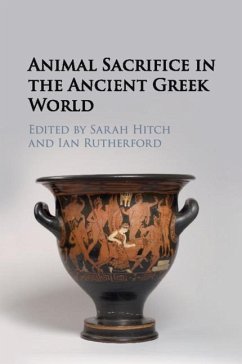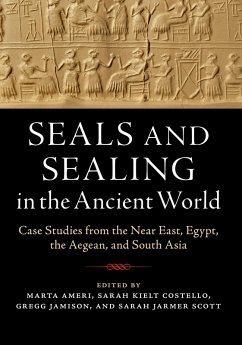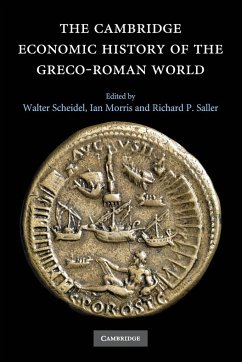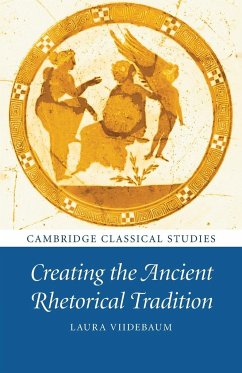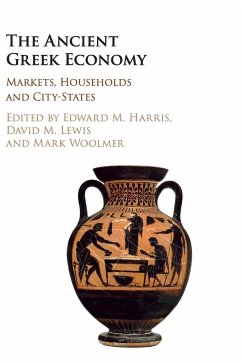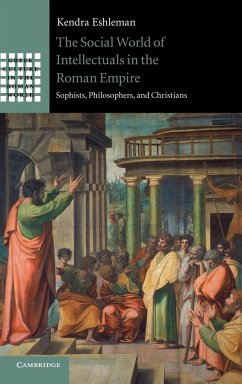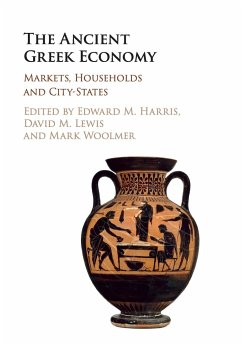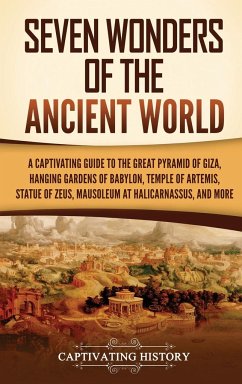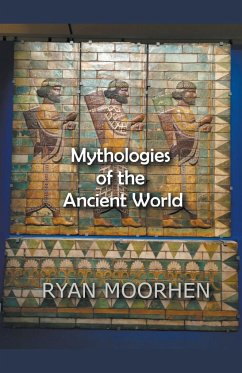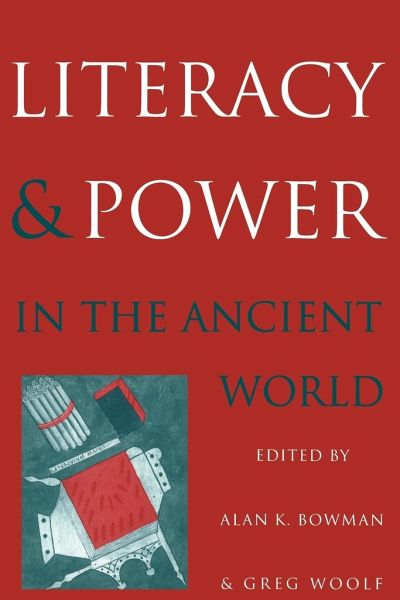
Literacy and Power in the Ancient World
Versandkostenfrei!
Versandfertig in 1-2 Wochen
49,99 €
inkl. MwSt.

PAYBACK Punkte
25 °P sammeln!
This collection attempts to set the study of literacy in the ancient world in the wider contexts of the debates among anthropologists over the impact of writing on society. Was writing a revolutionary innovation, prompting or participating in social change, or a fundamentally repressive and disciplinary technology? The book consists of a series of studies ranging over the whole of the Mediterranean world and much of northern Europe during a period of more than a millennium (c. 600 BC-AD 800). The areas examined include Pharaonic and Hellenistic Egypt, Persia and the Near East, Judaea, classica...
This collection attempts to set the study of literacy in the ancient world in the wider contexts of the debates among anthropologists over the impact of writing on society. Was writing a revolutionary innovation, prompting or participating in social change, or a fundamentally repressive and disciplinary technology? The book consists of a series of studies ranging over the whole of the Mediterranean world and much of northern Europe during a period of more than a millennium (c. 600 BC-AD 800). The areas examined include Pharaonic and Hellenistic Egypt, Persia and the Near East, Judaea, classical Greece, and the Roman and the Byzantine empires. Each of the contributors investigates, in his or her particular area of expertise, the changing roles of writing in history, in particular the extent to which writing played an active role in historical change in antiquity.
Table of contents:
1. Literacy and power in the ancient world Alan K. Bowman and Greg Woolf; 2. The Persepolis Tablets: speech, seal and script D. M. Lewis; 3. Literacy and the city-state in archaic and classical Greece Rosalind Thomas; 4. Literacy and language in Egypt in the Late and Persian Periods John Ray; 5. Literacy and power in Ptolemaic Egypt Dorothy J. Thompson; 6. Power and the spread of writing in the West Greg Woolf; 7. Texts, scribes and power in Roman Judaea M. D. Goodman; 8. The Roman imperial army: letters and literacy on the northern frontier Alan K. Bowman; 9. Literacy and power in early Christianity Robin Lane Fox; 10. Greek and Syriac in Late Antique Syria S. P. Brock; 11. Later Roman bureaucracy: going through the files C. M. Kelly; 12. Literacy and power in the migration period Peter Heather; 13. Texts as weapons: polemic in the Byzantine dark ages Averil Cameron.
Was writing a revolutionary innovation, prompting or participating in social change, or a fundamentally repressive and disciplinary technology? The book consists of a series of studies ranging over the whole of the Mediterranean world and much of northern Europe during a period of more than a millennium (c. 600 BC-AD 800).
This collection attempts to set the study of literacy in the ancient world in the wider contexts of the debates among anthropologists over the impact of writing on society.
Table of contents:
1. Literacy and power in the ancient world Alan K. Bowman and Greg Woolf; 2. The Persepolis Tablets: speech, seal and script D. M. Lewis; 3. Literacy and the city-state in archaic and classical Greece Rosalind Thomas; 4. Literacy and language in Egypt in the Late and Persian Periods John Ray; 5. Literacy and power in Ptolemaic Egypt Dorothy J. Thompson; 6. Power and the spread of writing in the West Greg Woolf; 7. Texts, scribes and power in Roman Judaea M. D. Goodman; 8. The Roman imperial army: letters and literacy on the northern frontier Alan K. Bowman; 9. Literacy and power in early Christianity Robin Lane Fox; 10. Greek and Syriac in Late Antique Syria S. P. Brock; 11. Later Roman bureaucracy: going through the files C. M. Kelly; 12. Literacy and power in the migration period Peter Heather; 13. Texts as weapons: polemic in the Byzantine dark ages Averil Cameron.
Was writing a revolutionary innovation, prompting or participating in social change, or a fundamentally repressive and disciplinary technology? The book consists of a series of studies ranging over the whole of the Mediterranean world and much of northern Europe during a period of more than a millennium (c. 600 BC-AD 800).
This collection attempts to set the study of literacy in the ancient world in the wider contexts of the debates among anthropologists over the impact of writing on society.





